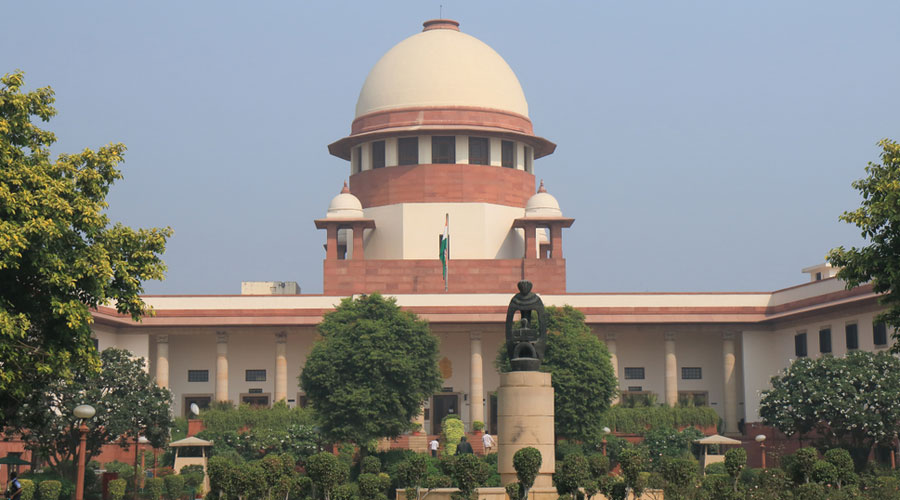The Supreme Court on Thursday allowed the Rajasthan High Court to pronounce order on plea of 19 dissident Congress MLAs, including sacked deputy CM Sachin Pilot, against the Assembly Speaker's notice for initiating disqualification proceedings against them, but said that it would be subject to the outcome of the petition before the top court.
Rajasthan Assembly Speaker C.P. Joshi, however, failed to get any interim relief on his plea alleging that the high court cannot interdict the disqualification proceedings undertaken by him under 10th schedule of the Constitution.
A bench of justices Arun Mishra, B.R. Gavai and Krsihna Murari said Joshi's plea raises important questions and requires prolonged hearing.
"We are not restraining the High Court from passing the order but it will be subject to the outcome of the petition (of Speaker) before the Supreme Court, the bench said, while fixing the plea for hearing on July 27.
Voice of dissent in democracy cannot be shut down, the bench observed.
"We are trying to find out whether this process (disqualification) was permissible or not," it said, while questioning Joshi on the reasons for initiating disqualification proceedings against the 19 dissident Congress MLAs.
Senior advocate Kapil Sibal, appearing for Joshi, listed the reasons for starting the disqualification proceedings, saying that these MLAs did not attend party meetings and conspired to destabilise their own government.
The bench said: "This is not a simple matter and these MLAs are elected representatives."
Responding to a query of the bench, Sibal said, "These MLAs had gone to Haryana, stayed at a hotel and gave TV bites that they want floor test."
He said, "the issue as to whether the disqualification process is permissible or not cannot be taken note of by the court at this stage. Our grievance is purely constitutional and there cannot be any order till decision is taken by the speaker."
Sibal said that at the most the Speaker can be asked to decide disqualification within a time frame but the process can't be interfered with and no writ can lie to challenge proceedings before the Speaker prior to the decision on disqualification or suspension of MLAs.
The bench asked Sibal whether a disqualification notice can be issued to MLAs for not attending the meetings and can it be taken as stand against the party.
The observation came when Sibal said that there was a notice issued by the chief whip of the party to all MLAs to attend the meetings.
At the outset, Joshi told the top court that the state high court has no jurisdiction to restrain him from conducting disqualification proceedings till July 24 against 19 dissident Congress MLAs, including sacked deputy chief minister Sachin Pilot.
Sibal referred to a famous top court verdict rendered in the 1992 Kihoto Hollohan case, in which it was held that courts can't intervene in disqualification proceedings undertaken by the Speaker under Tenth Schedule to the Constitution.
He said courts could only intervene when the Speaker takes a decision to suspend or disqualify a member of the House.
Sibal's response came when the bench asked him whether courts could not intervene at all if the Speaker suspended or disqualified a lawmaker.
Joshi has challenged the Rajasthan High Court's July 21 order, which said the verdict on the petition filed by the 19 MLAs, challenging the disqualification notices, will be pronounced on July 24 and asked him to defer the disqualification proceedings till then.
Joshi argued that the judiciary cannot interfere with the powers that the anti-defection law gives him.
In the petition, filed through advocate Sunil Fernandes, Joshi has cited several apex court rulings, mainly a five-judge constitution bench judgment in Kihoto Hollohan v Zachillhu (1992).
That judgment said that under the anti-defection law, no court can interfere in proceedings before a Speaker until the Speaker has given a finding on the proposed disqualification.
Joshi has complained that on a petition from the rebel MLAs, Rajathan High Court decided to intervene at the initial notice stage itself, restraining him from even calling for replies till July 24.
His petition stresses that the 1992 judgment held that the courts cannot prohibit the Speaker from going ahead at the quia timet stage. Quia timet refers to an injunction against an imminent wrongful or illegal act.











